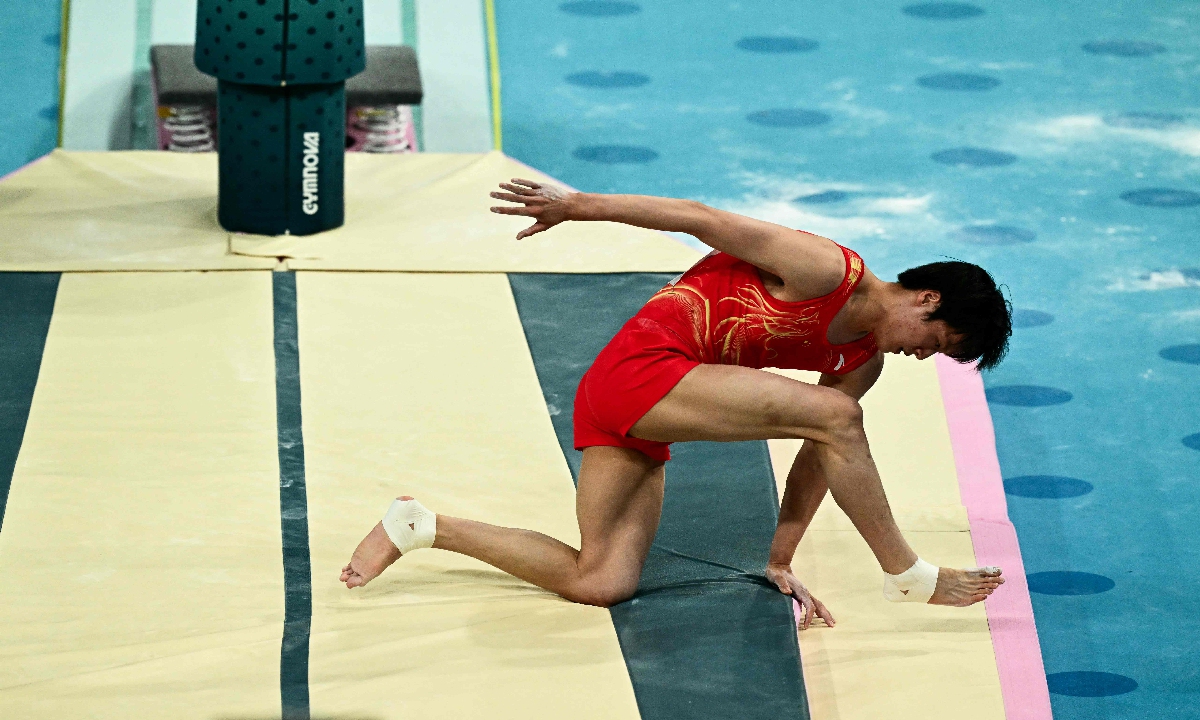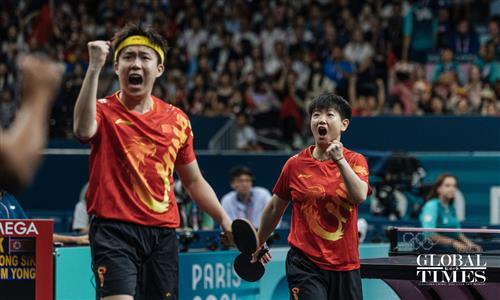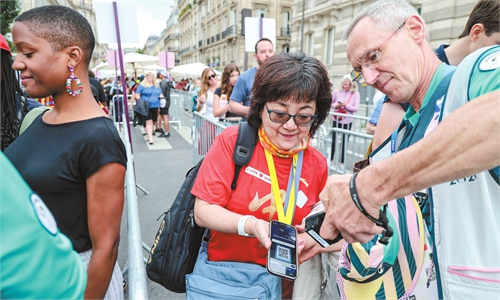SPORT / OLYMPICS
Active response best way to handle online pressure

China's Su Weide competes in the vault event of the artistic gymnastics men's team final during the Paris 2024 Olympic Games at the Bercy Arena in Paris, on July 29, 2024. Photo: VCG
The recent social media scrutiny of Chinese gymnasts headlined by Su Weide at the Paris Olympics highlights a broader issue faced by athletes worldwide: how to deal with intense public and media criticism.
Su's mistakes in the men's team gymnastics event led to a loss of the gold medal to Japan, prompting an outpouring of harsh public criticism from fans. Accusations ranged from a history of poor performances to even allegations of nepotism.
Public opinion can be incredibly harsh, often fixating on athletes' failures rather than their successes. This phenomenon is not new. Legends like gymnastics great Li Ning and star hurdler Liu Xiang have also suffered under the weight of public criticism.
Criticism is an inevitable part of sports, but when it becomes baseless and overly harsh, it can cross the line into abuse.
For instance, the flood of criticism aimed at Su following his performance included not only legitimate critiques of his errors but also unfounded accusations and personal attacks. While it is essential to distinguish constructive criticism from mere vitriol, athletes must learn to navigate and respond to both.
Su's teammates Zhang Boheng and Li Xiaopeng publicly supported Su, emphasizing the difficulty of his role and the team's collective responsibility for its performance. This kind of solidarity and positive reinforcement is crucial to helping athletes withstand the pressures of public opinion.
A notable example of an athlete who can constructively handle opinions against them is Chinese tennis player Zheng Qinwen.
After defeating US player Emma Navarro in the women's singles round of 16, Zheng faced unwarranted criticism and disrespect from her opponent.
But Zheng's response, expressing a willingness to learn and grow from the feedback by saying she would like to correct what upset Navarro and become a better player, demonstrated a higher level of wisdom. This kind of approach not only defuses negativity but also sets a positive example for other athletes.
Former basketball star Yao Ming has advocated for athletes to engage more with the public, emphasizing that increased communication and understanding lead to better judgment and perception. This perspective encourages athletes to see public interaction as an opportunity for growth rather than a threat.
China has moved beyond an era in which only gold medals matter, and the broader public is increasingly able to view sporting achievements with a balanced perspective.
Athletes today should not carry the burden of unrealistic expectations or view public opinion as an insurmountable obstacle.
Instead, they should embrace the chance to communicate openly, learn from feedback, and turn public scrutiny into a tool for personal and professional development.
Ultimately, athletes who actively engage with public opinion and respond constructively can transform negative spirals into opportunities for growth and improvement.
The author is a reporter with the Global Times. life@globaltimes.com.cn



